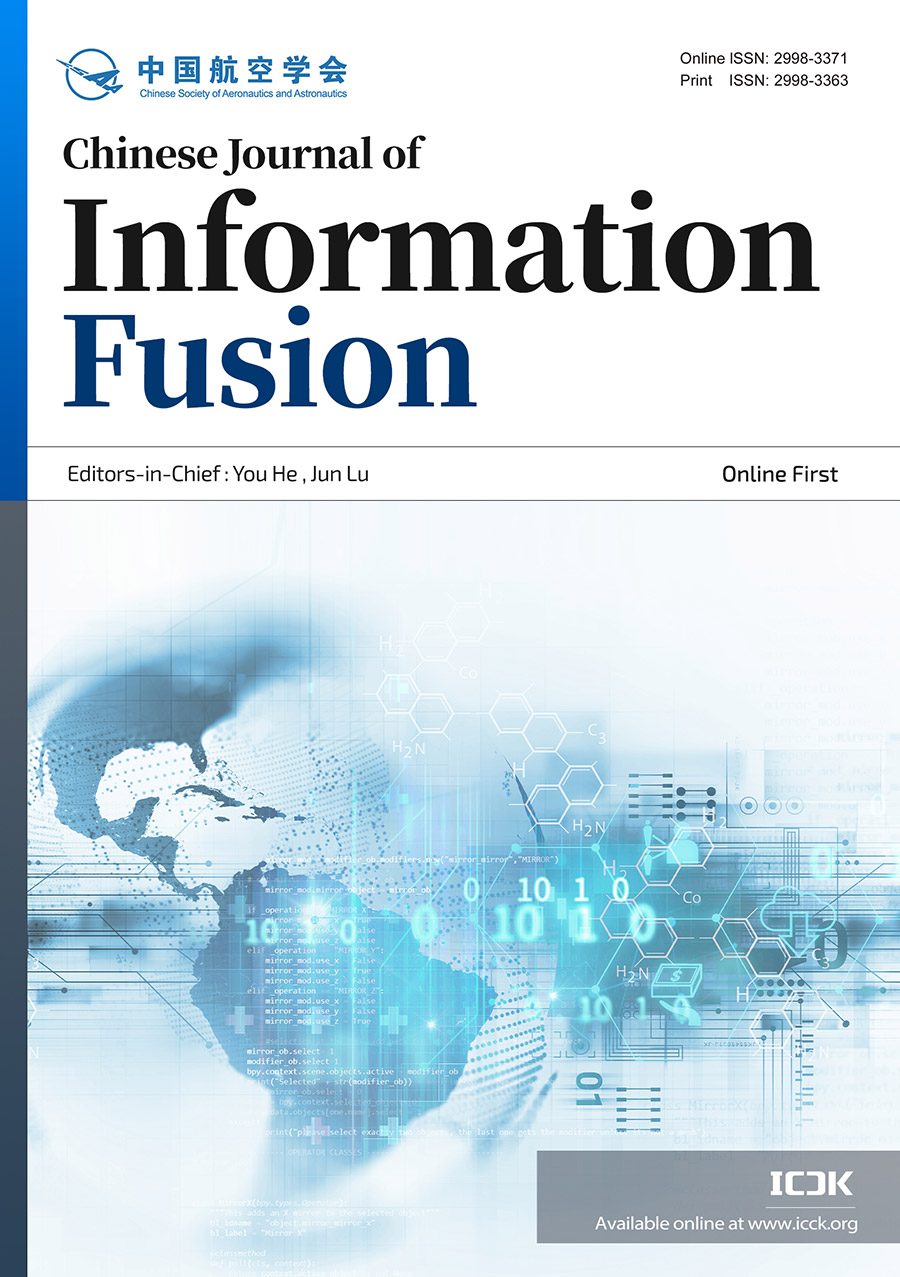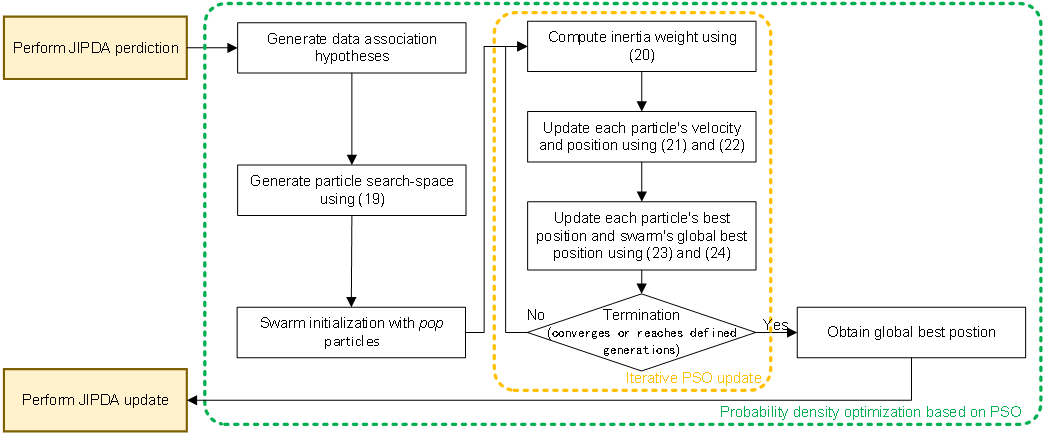Abstract
The joint integrated probabilistic data association (JIPDA) filter is effective for automatic multi-target tracking in cluttered environments. However, it is well-known that when targets are closely spaced, the JIPDA filter encounters the track coalescence problem, leading to inaccurate state estimations. This paper proposes a novel particle swarm optimization-based JIPDA (PSO-JIPDA) algorithm, which improves the state estimation accuracy by optimizing the posterior probability density, effectively addressing the information fusion challenge in multi-target tracking scenarios with closely spaced targets. The trace of the covariance matrix of the posterior density serves as the objective function for the optimization problem. Minimizing the trace enhances the accuracy of target state estimation by refining the posterior density. Specifically, all possible permutations of the targets are enumerated, with each permutation assigned a unique index. These indices are mapped to association hypothesis events within a probabilistic fusion framework, where each mapping corresponds to a particle in the PSO algorithm. The particles are initialized by stochastically assigning indices to hypothesis events, forming the initial swarm. During iterations, the particles dynamically adjust their positions and velocities based on individual and global optimal solutions, guided by the trace minimization objective. Experimental results demonstrate that the PSO-JIPDA algorithm significantly improves the accuracy of Gaussian approximation and makes notable progress in addressing the track coalescence problem.
Keywords
multi-target tracking
particle swarm optimization
probabilistic fusion
joint integrated probabilistic data association
Data Availability Statement
Data will be made available on request.
Funding
This work was supported in part by the National Natural Science Foundation of China under Grant 62306226, in part by the Key Research and Development Program of Shaanxi under Grant 2025CY-YBXM-074, and in part by the Fundamental Research Funds for the Central Universities under Grant GK202406006 and Grant XJSJ25002.
Conflicts of Interest
The authors declare no conflicts of interest.
Ethical Approval and Consent to Participate
Not applicable.
Cite This Article
APA Style
Zhu, Y., Wang, H., Liang, S., Mallick, M., Guo, T., & Liao, J. (2025). Particle Swarm Optimization-Based Joint Integrated Probabilistic Data Association Filter for Multi-Target Tracking. Chinese Journal of Information Fusion, 2(2), 182–193. https://doi.org/10.62762/CJIF.2025.506643
Publisher's Note
ICCK stays neutral with regard to jurisdictional claims in published maps and institutional affiliations.
Rights and permissions

Copyright © 2025 by the Author(s). Published by Institute of Central Computation and Knowledge. This article is an open access article distributed under the terms and conditions of the Creative Commons Attribution (CC BY) license (
https://creativecommons.org/licenses/by/4.0/), which permits use, sharing, adaptation, distribution and reproduction in any medium or format, as long as you give appropriate credit to the original author(s) and the source, provide a link to the Creative Commons licence, and indicate if changes were made.


 Submit Manuscript
Edit a Special Issue
Submit Manuscript
Edit a Special Issue

 Copyright © 2025 by the Author(s). Published by Institute of Central Computation and Knowledge. This article is an open access article distributed under the terms and conditions of the Creative Commons Attribution (CC BY) license (https://creativecommons.org/licenses/by/4.0/), which permits use, sharing, adaptation, distribution and reproduction in any medium or format, as long as you give appropriate credit to the original author(s) and the source, provide a link to the Creative Commons licence, and indicate if changes were made.
Copyright © 2025 by the Author(s). Published by Institute of Central Computation and Knowledge. This article is an open access article distributed under the terms and conditions of the Creative Commons Attribution (CC BY) license (https://creativecommons.org/licenses/by/4.0/), which permits use, sharing, adaptation, distribution and reproduction in any medium or format, as long as you give appropriate credit to the original author(s) and the source, provide a link to the Creative Commons licence, and indicate if changes were made. 